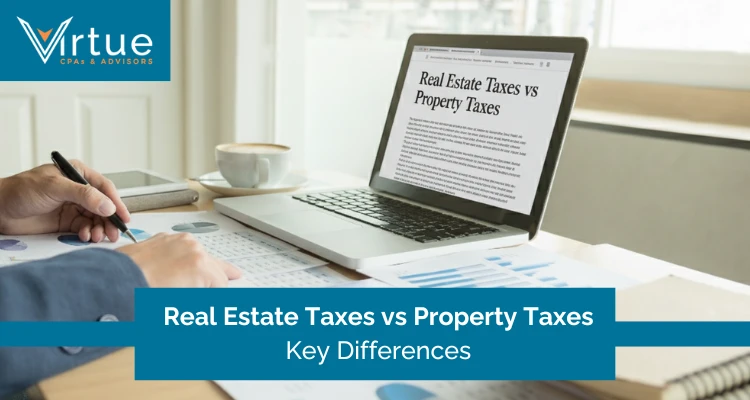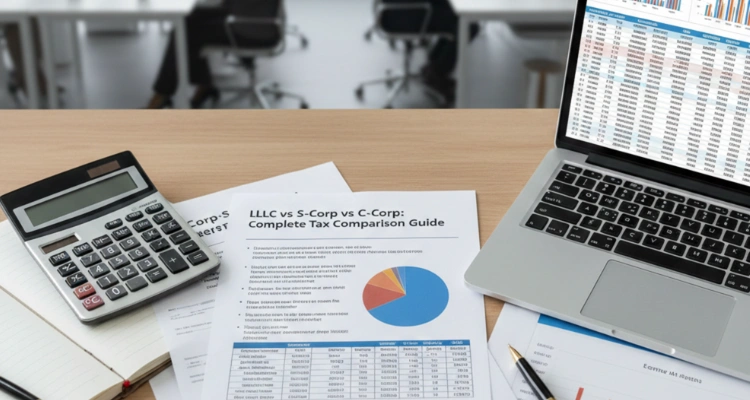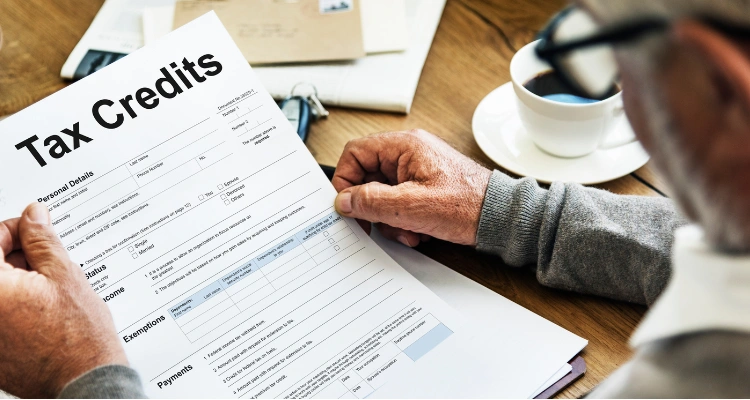You might be surprised at how often people use “real estate tax” and “property tax” as though they’re the same thing.
After all, both seem to relate to your home, your land, or other assets you own.
But in many places, there is a technical distinction, and knowing it can save you money or at least help you understand your bills better.
Imagine this: you’re buying a house, and the closing agent hands you a schedule that shows “real estate tax” and “property tax” lines.
You assume they’re interchangeable. Later, when you register your car, you see a “property tax” component there too. Suddenly, the confusion becomes real—and maybe expensive.
In this post, you’ll learn clearly:
- What real estate taxes are
- What property taxes are (and when they include movable assets)
- The key differences between them
- How these taxes impact you, whether you own a home, run a business, or invest in real estate
Let's break it down.
What Are Real Estate Taxes?
When people talk about taxes on your land or your home, they usually refer to real estate tax (sometimes also called “real property tax”).
This is a tax levied by local governments (sometimes city, county, or municipal) based on the assessed value of your real property—the land plus whatever is permanently attached (your house, any other structures, etc.).
You’ll see these taxes every year (or semiannually) as part of your property tax bill in many U.S. jurisdictions. The local assessor estimates the value of your property, applies a local tax rate, and you owe the resulting amount.
Real estate tax revenue typically supports local services you use: public schools, road maintenance, emergency services, parks, libraries, etc.
Components of Real Estate Taxes
When you look at your real estate tax bill, there are often multiple components:
- Land value tax: a portion based on the value of the land itself
- Improvement tax: on any buildings or structures built on the land
- Special assessments: occasionally, local governments will impose extra charges on properties benefiting from a specific public project (e.g, street paving, sidewalk improvements) called special assessments.
These combine to form your total real estate tax amount.
How Real Estate Taxes Are Calculated
The typical formula is simple in concept:
Assessed Value × Tax Rate = Real Estate Tax Due
But in practice:
- The assessor determines a market value for your property.
- Sometimes, only a percentage (assessment ratio) of that market value is used (for example, maybe only 60% of the market value is taxable).
- The local governing body applies a tax rate (often expressed in mills, dollars per $1,000 of value).
- You may see “mill rate” or “millage rate” used in your jurisdiction.
For example, if your assessed value (or taxable assessed value) is $200,000 and your local tax rate is 2%, then your real estate tax would be $4,000.
Each year (or every few years), your property may be reassessed to reflect changes in market conditions.
Factors Influencing Real Estate Tax Rates
Several factors affect how high or low your real estate tax ends up being:
- Location and local government budget needs
- School district funding needs
- Public infrastructure projects
- Property market trends and appreciation/depreciation
- Local politics and voter-approved levies
- Exemptions or caps allowed by state law (for instance, California’s Proposition 13 limits reassessments.
What Are Property Taxes?
“Property tax” is a broader term. It can include real estate taxes, but it can also include taxes on personal property—movable or tangible assets not fixed to land.
Examples include cars, boats, business equipment, or even furniture (depending on state/local rules).
In many places, “property tax” is used colloquially to mean just the tax on your home. But technically, property taxes cover all kinds of taxable property, both real and personal.
What Falls Under Property Taxes
Under the broader umbrella of “property taxes,” two main categories usually appear:
- Real property: land, houses, commercial buildings, permanent structures
- Personal property: moveable items (cars, boats, business equipment, tools)
In many jurisdictions, personal property taxes are relatively minor, but for people with significant business assets or luxury items, they can matter.
How Property Taxes Are Assessed
For real property, the assessment is similar to real estate tax procedures (market value, assessment ratio, tax rate).
For personal property, valuation may consider depreciation, resale value, or a standard schedule of values (for cars, equipment, etc.).
Some jurisdictions exempt a certain amount of personal property or have no personal property tax at all.
Differences by Jurisdiction
Here’s where your state or local laws come strongly into play:
- In some states, only real property is taxed; personal property is not taxed at all.
- In other states, vehicles (for example) are taxed annually when you register them—this may be called a “property tax” on your car.
- Some states extend personal property taxation to business equipment or inventory.
- Globally, the systems can differ: e.g., in the UK, you might have council tax or business rates rather than direct property taxes as in the U.S.
So, depending on where you live, some parts of “property tax” may not apply to you, or you may face surprising taxes on non-real items.
Key Differences Between Real Estate and Property Taxes
Let’s directly compare the two so you can see clearly how they differ.
Comparison Table: Real Estate Taxes vs Property Taxes
| Feature | Real Estate Tax | Property Tax (Broad) |
|---|---|---|
| What is taxed | Land + permanently attached structures | All taxable property, including real + personal |
| Scope | Usually only real property | Real property plus movable assets (if applicable) |
| Rates | Often higher, as real estate is more valuable | Often lower for movables / may not exist |
| Assessments | Based on local real property assessments | Assessments for personal property may use schedules or depreciation |
| Administrative bodies | Local tax assessor / local government | Local plus sometimes state authorities |
| Common usage | Majority of people use this for their home tax | Many people use “property tax” to mean real estate tax, but technically broader |
So when someone says “my property tax is going up,” they’re typically referring to the real estate tax on their home, but that may not always be the full story.
Real Estate Taxes vs Property Taxes: Impact on Homeowners and Investors
Knowing the difference matters because it affects your finances, your decisions, and your obligations.
Impact on Homeowners
- Your monthly housing cost may include real estate tax (via escrow) if your mortgage company collects it.
- When markets jump, your real estate tax may spike unless there are caps or limitations in your jurisdiction.
- You’ll want to budget for these as part of the carrying cost of home ownership.
Impact on Real Estate Investors
- Investors often deal with multiple properties, so real estate tax management is a recurring expense to factor into returns.
- In some areas, property taxes (real) become a key deciding factor when choosing investment locations.
- You might also have personal property taxes on business equipment used in rentals (furniture, appliances).
Impact on Commercial / Business Owners
- Business owners may have to pay personal property taxes on machinery, equipment, furniture, and vehicles used in the business.
- These additional property taxes can affect profitability, depreciation schedules, and tax accounting.
- A property tax increase in the area can also influence rental rates or property value.
So you need to look at all taxes on all property types when assessing your true cost or return.
Conclusion
You’ve now seen:
- What real estate taxes are and how they differ from broader property taxes
- The meaning of property taxes, which can include personal property
- The key differences, side by side
- How these taxes affect you as a homeowner, investor, or business owner
Understanding these differences is not just academic—it helps you read tax notices without confusion, budget properly, and make smarter decisions when buying or investing.
If you’d like personalized guidance—for your home, investment property, business assets, or tax strategy—reach out to Virtue CPAs.
Our experts can walk you through your specific tax profile, help you appeal assessments, and plan ahead.
Contact Virtue CPAs for a consultation today and gain clarity over your real estate and property tax obligations.
Frequently Asked Questions







